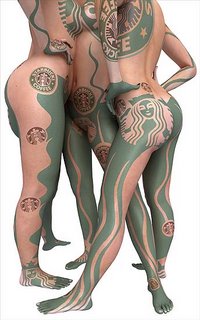 photography by flickr
photography by flickr
(and an anoynomous photographer)
The coffee clash between Ethiopia and Starbucks explained
BY SIMON ROBINSON
Nov. 6, 2006 Vol. 168, No. 20
TIMEeurope.com October 30, 2006
Ethiopian coffee farmers
CRISPIN HUGHES / OXFAM
Ethiopian coffee farmers hope to earn more with a U.S. trademark
U.K.-based charity Oxfam last week accused Seattle-based coffee giant Starbucks of blocking Ethiopian efforts to trademark three types of coffee beans in the U.S. Starbucks denies this, but the controversy continues to percolate.
What does Ethiopia want? The Ethiopian government applied to trademark its most famous coffee-bean names — Harar, Sidamo and Yirgacheffe — in the U.S. last year. The Ethiopian Intellectual Property Office estimates that controlling the names of the beans could earn Ethiopia an extra $88 million a year.
How so? Owning the names, Ethiopia reasons, will enable it to build premium brands.
How has Starbucks responded? The coffee chain has said it is against Ethiopia's trademark initiative, arguing it will actually harm poor farmers more than help them, but it denies Oxfam's claim that it asked the National Coffee Association to oppose the applications. The U.S. Patent and Trademark Office turned down Ethiopia's application for the Sidamo and Harar beans, saying the names are generic, but it did grant Yirgacheffe a trademark in August.
Do governments frequently trademark native products? It's not uncommon, but they more frequently use geographic certification to brand everything from orange juice to cheeses.
Jamaica has achieved great success with its Jamaica Blue Mountain Coffee, which is registered with a certification mark in the U.S. Starbucks says it supports a certification program for Ethiopian coffees, but not trademarks.
Originally Published in TIMEeurope.com October 30, 2006
 photography by flickr
photography by flickr


